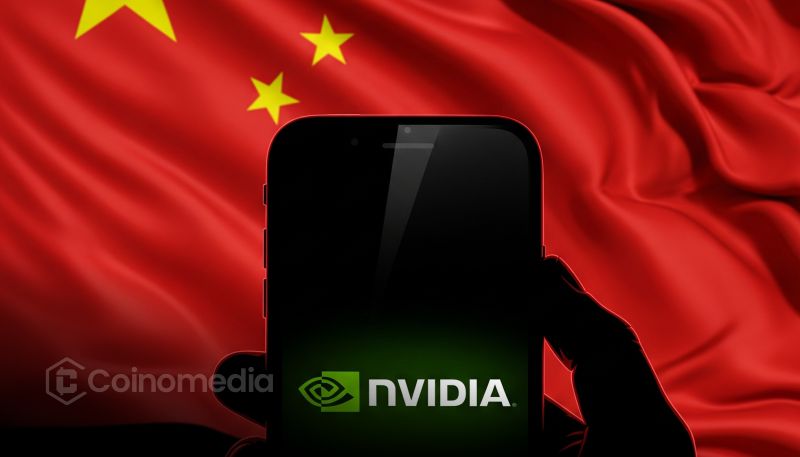China Bans Companies from Buying Nvidia Chips
China restricts companies from purchasing Nvidia chips amid growing tech tensions with the U.S.

- China bans companies from purchasing Nvidia’s AI chips.
- Move escalates ongoing tech war with the United States.
- Ban may impact Nvidia’s growth in key Asian markets.
Why China Banned Nvidia Chips
In a significant move, China has reportedly banned domestic companies from purchasing advanced AI chips made by U.S. tech giant Nvidia. The decision intensifies the already heated tech war between the United States and China, signaling a new phase in their ongoing struggle over technological dominance.
The ban primarily affects Nvidia’s high-performance GPUs, which are widely used for artificial intelligence, machine learning, and data center applications. These chips have become a crucial component in various industries, from cloud computing to autonomous vehicles. By halting purchases, China aims to reduce its dependence on U.S. technology while boosting its own chip-making capabilities.
This action is viewed as a direct response to U.S. export restrictions that have previously blocked Chinese firms from acquiring certain advanced semiconductor technologies. The tit-for-tat measures reflect the broader geopolitical battle over who will lead the future of global tech innovation.
Impact on Nvidia and the Global Tech Market
Nvidia has been one of the top beneficiaries of the recent AI boom, with its share price soaring and demand for its chips reaching record highs. China, being one of Nvidia’s major markets, plays a significant role in its revenue stream. The ban could impact the company’s long-term growth and market share in Asia.
On the other side, Chinese companies may face short-term setbacks as they scramble for alternatives to Nvidia’s industry-leading hardware. This may accelerate domestic chip development or push Chinese firms to seek solutions from non-U.S. suppliers.
The ban also signals a warning to other U.S. tech firms that their business in China might face similar hurdles. As both nations double down on self-reliance, the global tech supply chain could be in for major disruptions.
Read Also:
- Crypto Stays Cautious After Trump’s China Deal
- Chainlink Price Today: LINK Stalls Below $17.55, Why Noomez ($NNZ) Presale Has Higher 100x Potential
- Romania Bans Polymarket Over $600M Election Bets
- CZ Buys $2M Worth of Aster for Long-Term Hold
- Analysts Tip BullZilla as the Next Crypto To Hit $1, While MoonBull Powers Up And La Culex Tightens Its Grip



